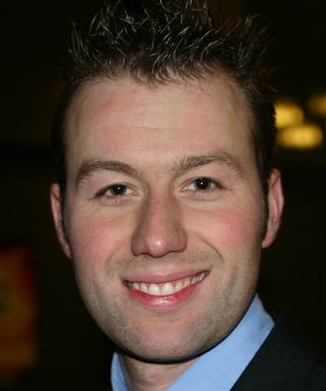
Johan Oomen |
Webstroom launches new Pilot Projects Johan Oomen MA (Netherlands Institute for Sound and Vision) May 2005
|
|
The Dutch Webstroom Community has established itself as a active group of professionals who, with the support of the Dutch SURF organization, managed to leverage the uptake of streaming media in the Netherlands. Webstroom was founded 5 years ago and unites professionals of major Dutch Higher Education institutions, content providers, and technology enablers. Webstroom has created a lively webportal (http://video.surfnet.nl/info/webstroom/) and hundreds of individuals receive the bi-monthly newsletter. Amongst many other activities, Webstroom has been able to support pilot projects with financial support. In 2003 and 2004 a total of 10 pilot projects -of variable duration- where completed. The knowledge gained was widely disseminated, not only within the participating institutions, but throughout the whole community. It provided inspiration for new initiatives, eventually leading to the further deployment of video as learning resource in blended learning scenario's. In the beginning of 2005, a new call for proposals was released and no less than 26 projects ideas were send to the steering board of Webstroom, after ample debate the five most promising proposals were accepted:
A brief description of these initiatives and their tangible outcomes is listed below. The projects will run for approximately 10 months. The Webstroom editors will update the DIVERSE network throughout the duration of the projects and will give an overview paper during the DIVERSE conference in Nashville. 1. Hogeschool Edith Stein Videobenchmarks: Competence in view Using the model of Digital Portfolio's, students of the teacher-training programme of Edith Stein University will record their performance in the classrooms. These are subsequently edited into 3-5 minute clips linked to pre-defined cases. After a selection process the teacher and students pick the cases that can be labeled as 'benchmark'. The benchmarks will be placed in a library of exemplars, ready for reuse in future courses. 2. Universiteit van Tilburg "At your service" Over the years, the Faculty of Law at Tilburg University has gathered a collection of television programmes with cases of importance to studying law. However, teachers expressed the strong need to create their own cases, tailored to their demands and lectures. Within the "At you service" project, teachers can request cases to be performed by an amateur theatre company and distributed online using streaming media. The aim is to make these cases available to other law faculties in the Netherlands. 3. Universiteit Utrecht KIP: Knowledge Integration Project Utrecht University uses two electronic learning environments: BlackBoard and WebCT Vista. Both BlackBoard and WebCT Vista users have formed consortia in order to exchange experiences. Recently, the question emerged how to embed streaming media in these environments. The aim of the KIP project is to gain knowledge concerning the use of video in higher education, split in both organisational issues and issues related to pedagogy and focussed on using the electronic learning environments. Another party of major importance and contributor to the project is the university library, who's aim it is to play a central role in offering access to digital content. 4. Vrije Universiteit ZoEp: Electronic Programming guide for teachers Presently, librarians at the Vrije Universiteit are the ones selecting which audiovisual material will be selected and offered to the teachers. The ZoEP project aims at giving teachers the possibilities to select certain material they need and hence build a 'fit for purpose' and user-oriented collection of learning objects. The idea is to ling search profiles of teachers to electronic programming guide, automating the content gathering process. Data concerning reuse is hence send to content providers giving insight in popular demand. For this project, the Vrije Universiteit is cooperating with the Dutch Broadcast Facility and two other universities. 5 Universiteit Utrecht Media-Arabic The institute for foreign languages at Utrecht University has been using video in their Modern Arabic studies since 2004. Some hours of footage of the Aljazeera news network was distributed on CR-ROM. The aim of the pilot project is to built a large corpus of Aljazeera footage, comprising of 15 minute clips over a period of six months. These clips will be used in classes starting this fall. One of the envisioned assignments is annotating the clips and writing transcripts. All this newly developed course material will be reused in the years to come. |
|
|
|
|
